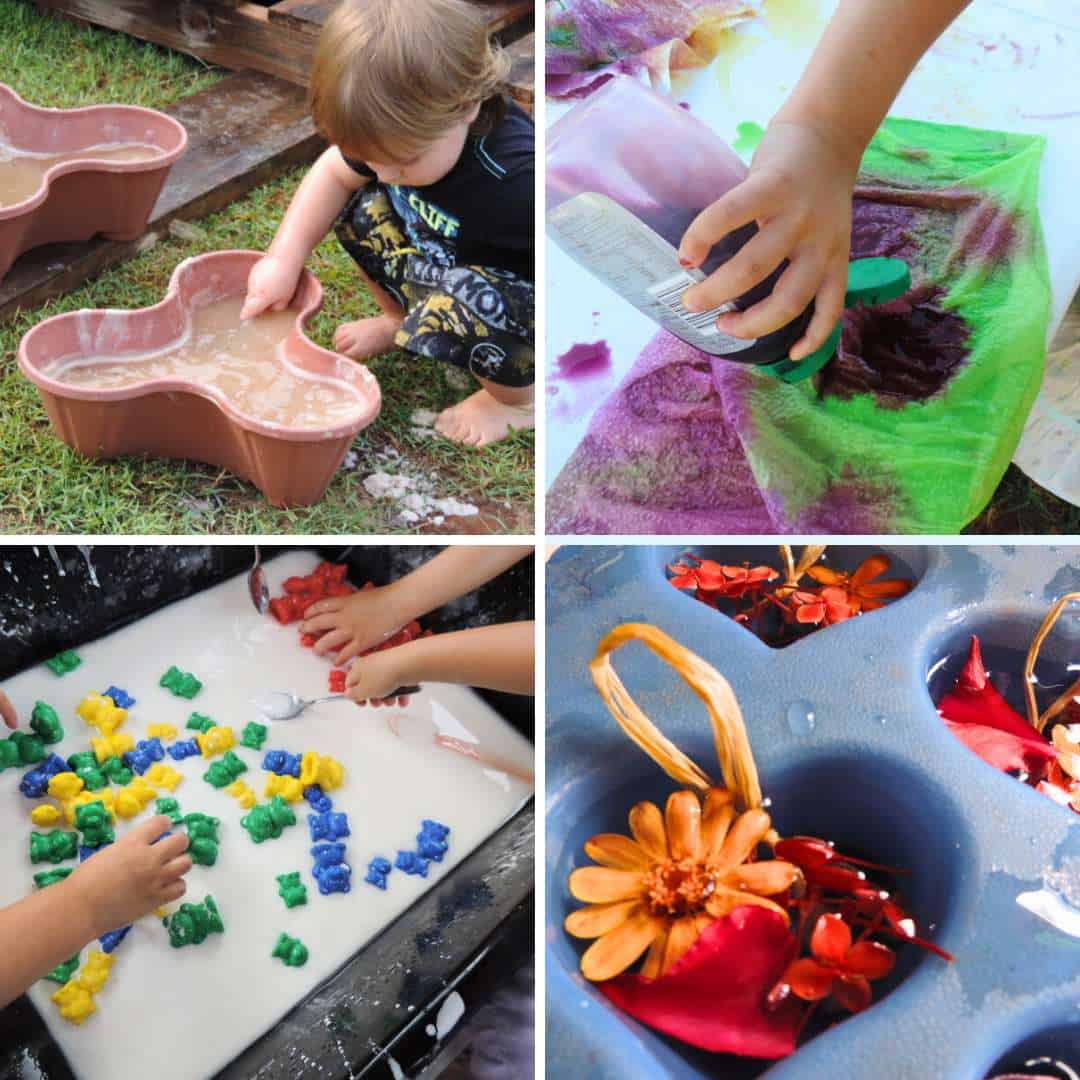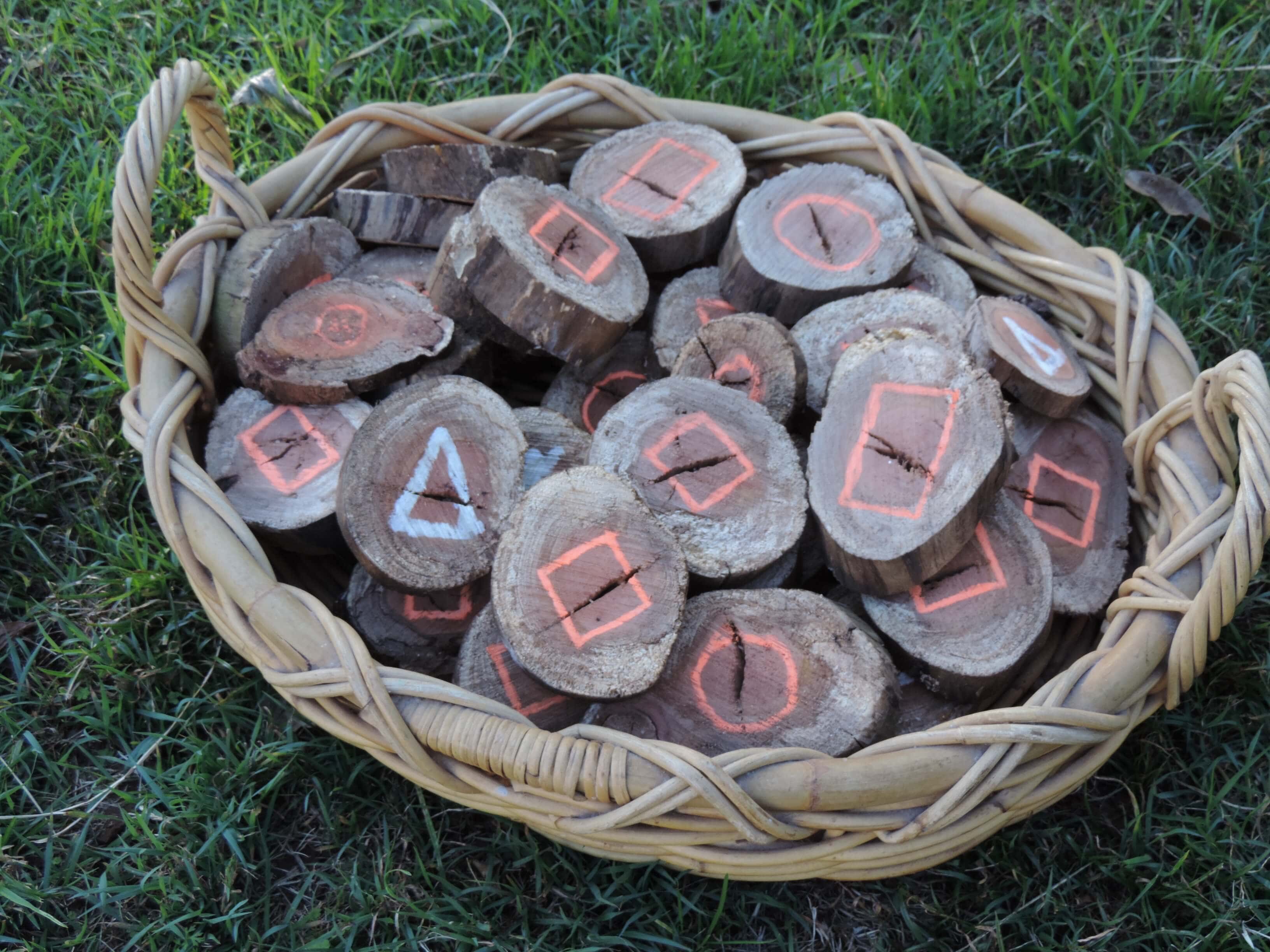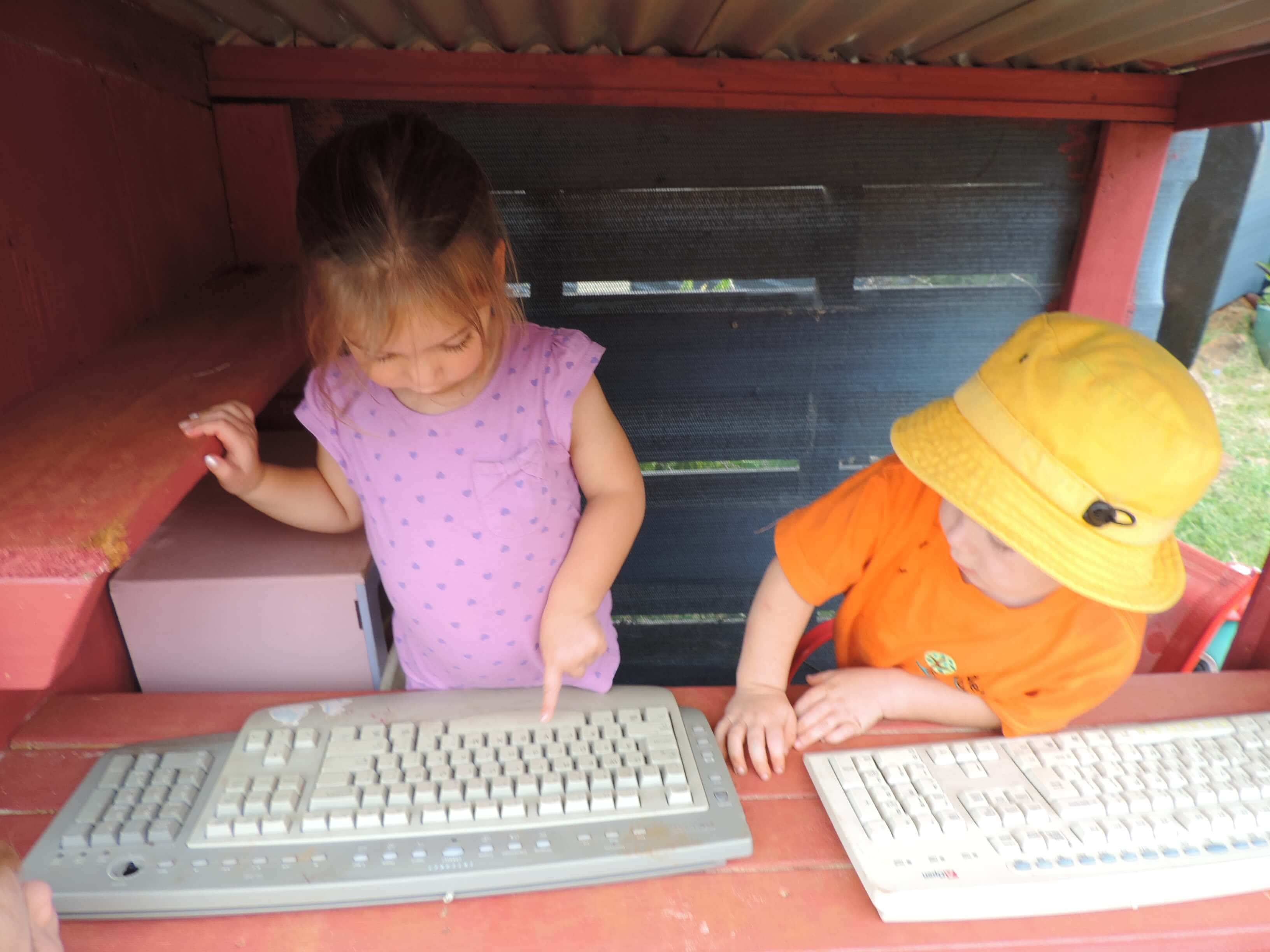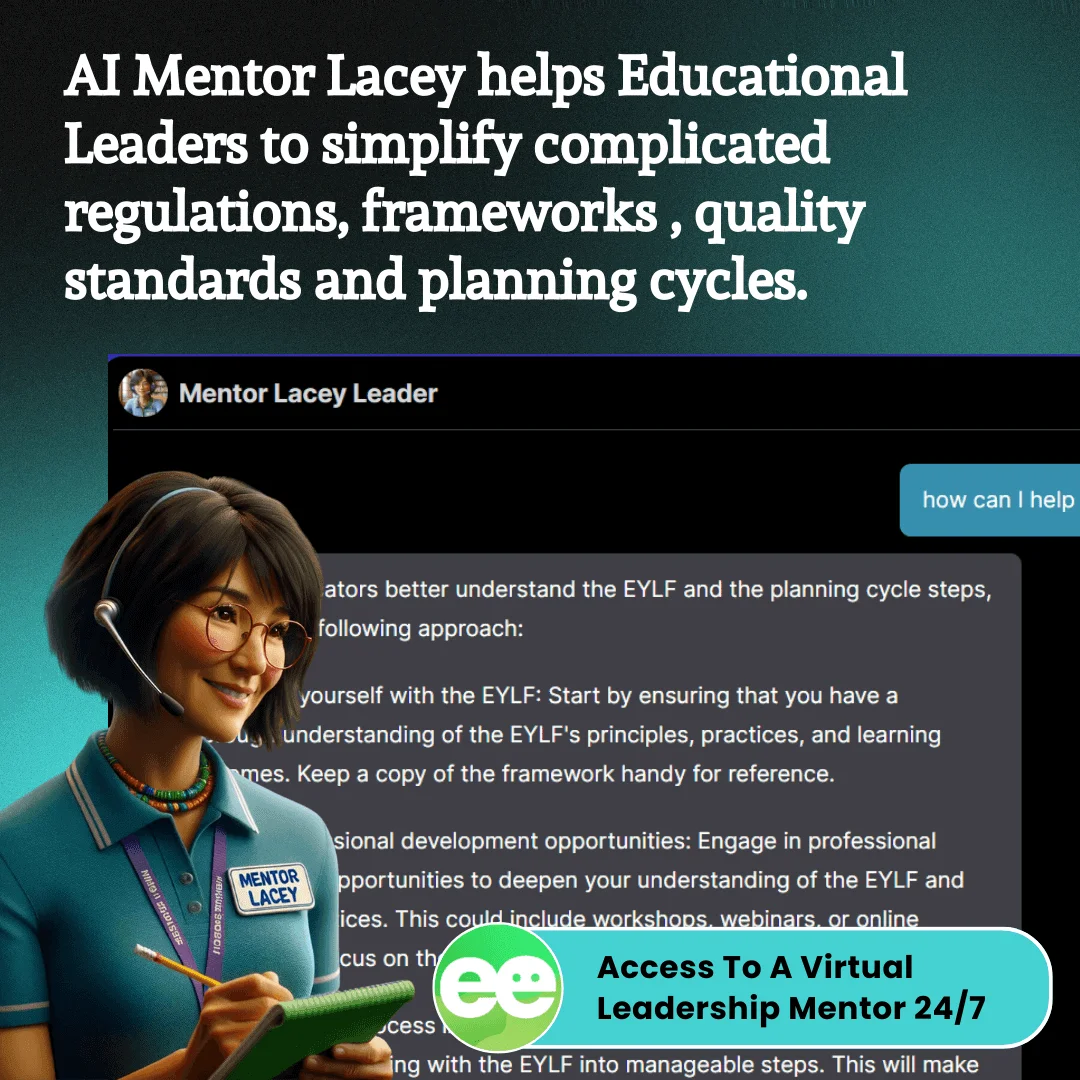Did you know that providing opportunities for play-based learning helps children develop essential skills just as much, if not more, than traditional teaching methods?
It’s true! While some might see play as “just fun,” (which of course it is!) It's also an essential foundation for learning. Think of a child carefully balancing blocks to build the tallest tower.
They’re not just playing—they’re testing physics, developing spatial reasoning, and strengthening fine motor skills. Or consider a group of children playing ‘shop.’ They’re actually practicing math, communication, and social problem-solving—all without a worksheet in sight!

Prefer to listen to an audio overview of the main highlights from this post? Go ahead and press play below...
Play shouldn't be seen as a break from learning - it IS learning…no matter the age (it’s a shame we tend to lose this perspective as we grow older!) And here’s where it gets even more interesting - Children actually have a natural urge to learn this way.
If play is so important to early learning though, why do we often feel pressured to introduce a more structured program and adult led activities to children, especially those in preschool …to ensure they are ‘ready for school?
And why do parents and carers often ask questions like, ‘Why aren’t they doing real learning yet or practising writing their name everyday?’ or ‘How will they be ready for school next year if they’re just playing all day?’
Despite decades of research proving the power of play-based learning, there’s still pressure on early childhood educators to introduce more structured, academic-style teaching like they will experience in the primary school curriculum at younger and younger ages.
The truth is, play in the early years doesn’t just prepare children for school...it prepares them for life.
I’d personally like to see the focus in our society and education departments shift from the pressures of "school readiness" to "transition to school," recognising that schools should be ready for children and the different learning styles rather than all children being ready for school in the same ways.
It’s through unstructured, open-ended play that children develop critical thinking, emotional intelligence, creativity, and resilience—all skills they need to become confident lifelong learners and isn’t that what’s important?
Some of the biggest benefits of play are the ones you probably haven’t even thought about!
And that’s what this post will reveal for you - 10 surprising ways simple play based learning experiences can build skills in young children. I’m also giving you some practical strategies and activity ideas that will make introducing opportunities for play based learning into everyday routines and experiences easier .

Keep Reading To Find Out....

jodie clarke - the empowered educator
In my opinion...schools should be ready for children and their many different learning styles rather than all children needing to be ready for school in the same ways
Ready to come with me and explore the 10 surprising benefits of play-based learning? (There are a lot more than 10 to be honest... but these are my essentials!)
1
Building Brain Skills (Executive Function)
Wait… Play helps to build brain skills? Yes! And it’s one of the biggest hidden benefits of play-based learning.
That’s good to know…but what the heck is it?
Think of executive function (brain and cognitive) skills as the brain’s self-management system - they help children plan, focus, remember instructions, control impulses, and adapt to new situations. They’re the skills that allow children to problem-solve, regulate emotions, and find their way through common everyday challenges - both in learning and life!
So when you hear the term executive function skills, you might think of more structured activities - like sitting down with a puzzle, practicing handwriting, or following a multi-step project. However, open-ended, unstructured play is actually one of the most effective ways to build these types of essential life skills.
Think about what happens when a child is deeply engaged in play. Whether they’re building a block tower, playing pretend in home corner, or working out roles in a group game, they’re strengthening essential life skills, like:

So how can we create more opportunities for children to build executive function through play?
How to Encourage Children's Brain Skills Through Play
What's Surprising? Whether it's a baby playing peek-a-boo, a toddler sorting blocks, or a preschooler running a pretend shop, play is more than just fun - it’s actually helping children develop essential life skills like self-regulation, decision-making, and flexible thinking.
Here are some easy ways to foster this approach in your early learning environments and planning:

Open ended materials have always formed a core part of my planning and experiences offered to children – both indoors and out. I've included photos of just some of the favourites throughout this post to help you visualise the possibilities of including more of these types of materials into your program or with your own children.
2
Building Stronger Language Skills
Children naturally expand their vocabulary and expression through play interactions...
While structured phonics lessons and naming letters have their place in formal schooling curriculums , play still remains one of the most natural and effective ways for young children to develop strong language and communication skills.
When children play pretend, tell stories, or join in group games, they’re constantly practicing language skills:
Unlike the more adult-led, pre-planned activities (which also have their place in supporting intentional teaching goals), this type of play gives children a fun, low-pressure way to experiment with language - which is exactly how they learn best.
Ever noticed how a child playing ‘shopkeeper’ suddenly sounds like an adult? ‘That’ll be five dollars, please!’ (or the phrase I overheard a 4 year old yell out to his friend while riding a bike through the ‘drive through’ - ‘just a 6 pack mate!’ haha…oh the things I have heard over the years!)
It’s because play is providing them with a safe space to experiment with real life moments they have experienced, new words and social interactions (even if it might make us adults cringe sometimes in embarrassment!).
Playful Ideas To Help Build Language Skills...
What's Surprising? From babbling babies to chatty preschoolers, play helps children naturally develop language skills. Whether it’s a baby exploring sounds, a toddler naming objects, or a preschooler telling a story, every playful interaction strengthens communication…
So how can you encourage more language-rich play whether at home or in an early learning environment? Try some of these ideas:

Music and finger plays are an engaging and interactive way to tell stories and also reach across all of the Australian Early Years learning Framework (EYLF) outcomes. There is a way to include music into learning for all ages from babies through to teens - for more ideas read this blog post.


3
Strengthened Social-Emotional Regulation
You’ve probably noticed many children over the years struggling to take turns, feeling frustrated when a game doesn’t go their way, or having a disagreement with a friend.
Without a doubt these moments can be challenging for you and the children (you’re talking to a Mum who survived the toddler years with twins while running a family daycare here so I get it!) but they’re also incredible learning opportunities for building social-emotional regulation skills.
Through play, children express their emotions, grow an understanding of others' feelings, and develop coping strategies - all without relying on just intentional adult-led learning.
So, when children engage in group play, imaginative play, or sensory experiences, they’re practising:
Think about the last time you saw a child struggling to put together a tricky puzzle or balance on a log.
Did they get frustrated? Maybe. But if they kept going and finally succeeded, you likely saw a huge smile and a proud ‘I did it!’ That’s resilience in action - play gives children the freedom to try, fail, and try again in a safe and natural way
Children don’t just learn about emotions by talking about them—they experience and process feelings best through play.
If you’d like more strategies and ideas to support emotional regulation, find out how to chat with my AI Assistant Maisie Mindfulness & Inclusion here - you’ll get help with behaviour guidance plans, mindfulness activities, playful ideas and communicating with parents about those tricky situations!
How Play Helps Children Manage Big Emotions
What's Surprising? Whether it’s taking turns, handling disappointment, or expressing joy, play provides a safe space to practice self-regulation, empathy, and problem-solving…
Here’s some creative ways to support emotional development through play at different ages:


4
Increased Creativity and Imagination
Creativity isn’t just about painting, drawing, or making crafts - it’s about thinking in new ways, solving problems, and exploring endless possibilities.
And play is where and how children learn to think outside the box. They are actively discovering different ways to think, create, and solve problems as they play.
So, when children engage in group play, imaginative play, or sensory experiences, they’re practising:
Creativity is one of the most valuable life skills a child can develop - it helps them become inventive thinkers, strong problem-solvers, and adaptable learners.
It thrives when children have the freedom to explore, experiment, and invent.
How to Spark Creativity and Self Expression Through Play
What's Surprising? From babies exploring textures to preschoolers inventing elaborate stories, play is the perfect way to nurture creative thinking at every stage…
Here’s some suggestions to help you set up play environments that nurture creative thinking:


5
Improved Motor Skills and Coordination
Isn’t Moving Just About Burning Energy?
Not at all! While it’s true that active play helps children burn off excess energy, it’s also essential for developing fine and gross motor skills, which they’ll need for everything from handwriting to self-care tasks like buttoning a shirt or tying their shoes.
Without ample movement opportunities, children may struggle with writing, coordination, and everyday self-care skills later on.
Play is the best way for them to build strength, coordination, and balance naturally!
Through active, hands-on play and movement, children develop:
How Play Supports Physical Development
What's Surprising? From grasping objects as a baby to balancing on stepping stones as a preschooler, play naturally helps children develop both fine motor skills (small hand movements) and gross motor skills (whole-body movement).
Here’s some inspiration to help you support physical development through play at different ages:

Fine & Gross Motor Play Inspiration...


6
Opportunity To Experiment & Explore
STEM (Science, Technology, Engineering, and Math) isn’t just about experiments in a lab for older children - it’s happening holistically every time young children build, explore, experiment and question the world around them through play.
STEM in the early years is about curiosity, exploration, and problem-solving!
Play-based learning through the lens of STEM learning encourages:
How to Spark Creativity and Self Expression Through Play
What's Surprising? From a baby discovering cause and effect, to a toddler stacking blocks, to a preschooler designing a bridge, STEM learning happens naturally through all types of play…
Here’s how to support STEM thinking at different ages:


7
Increased Resilience and Adaptability
How Does Play Teach Children to Handle Challenges?
Resilience is built when children are free to take risks, make mistakes, and discover their own solutions.
Play naturally provides low-risk opportunities that allow children to face challenges, recover from failures, and develop the “keep going” mindset - which will give them the confidence needed to tackle challenges in real life, too.
When children face setbacks, try again, and keep going, they’re developing:

Activities That Build Children’s Resilience and Problem-Solving Skills
What's Surprising? From a baby reaching for a toy, to a toddler stacking blocks, to a preschooler solving a tricky problem, play naturally builds resilience, problem-solving, and confidence - one small challenge at a time!
Here’s some strategies to consider that can help foster resilience through play:


8
Improved Confidence and Independence
How Does Play Help Children Believe in Themselves?
Real confidence comes from experience and when children are given opportunities to take the lead in play, they develop confidence in their own ideas, choices, and abilities.
When children play in this way, they’re consistently:
How to Build Confidence Through Play
What's Surprising? From a baby reaching for a toy, to a toddler taking their first jump, to a preschooler confidently building a cubby, play gives children the experience they need to trust in their own abilities.
Here’s some ways you can support and nurture self-trust and confidence through playful opportunities and environments at different stages:


9
Better Focus and Attention Span
Can Play Really Help Children Stay Focused?
Yes! In fact, forcing young children to sit still for long periods of time often has the opposite effect - it makes focus and attention harder in the long run. Children develop longer attention spans when they are actively engaged in hands-on, interest-driven activities.
Play encourages deep concentration, natural self-regulation, and curiosity-driven exploration - making it a far more effective way to build focus than passive learning.
Rather than expecting young children to sit still and pay attention for long stretches, we should be giving them more opportunities to build focus through movement, hands-on experiences, and self-directed play.
Play-based learning naturally strengthens a child’s ability to concentrate by:
We often hear concerns that children ‘can’t focus’ (you’ve probably muttered those words a few times yourself over the years!) , but have you ever seen a child fully immersed in building a Lego structure or creating an imaginary world? They’re laser-focused because they’re interested.
Play naturally builds attention spans, but only when children are given the freedom to explore at their own pace. It’s not hard to comprehend that children focus best when they’re deeply engaged - not when they’re forced to sit still for long periods.
How to Use Play to Strengthen Focus and Attention
What's Surprising? From a baby tracking a sound, to a toddler deeply engaged in sensory play, to a preschooler focused on a Lego creation, play naturally builds the attention skills children need for lifelong learning.
Here’s a few ways you might use play to build those attention skills naturally:
Play naturally strengthens attention span, self-regulation, and concentration when children are deeply involved in activities that spark curiosity.
So the next time you see a child fully absorbed in their role play, carefully building a structure, or deeply exploring a sensory activity,know that it’s just one of many ways they’re practicing the focus and attention skills they’ll need for life.


10
Lifelong Love for Learning
Children are natural-born learners - but how they experience learning in their early years shapes their attitude toward it for life.
If learning feels like a chore, a test, or something they “have to” do, children may grow up seeing education as stressful or boring. But if learning is associated with laughs, curiosity, and exploration, they’re more likely to approach new challenges with enthusiasm and excitement.
Play makes learning exciting and natural. When children play, they explore, ask questions, and discover new things…just because they want to!

Through play, children:
Instead of focusing on “What do I have to learn?”, play-based experiences help children ask, “What else can I discover?”—and that makes all the difference.
Spark Their Wonder - Activities That Make Learning Exciting
What's Surprising? From a baby fascinated by textures, to a toddler excited to mix colours, to a preschooler building a rocket from cardboard, learning should feel like an adventure - because that’s how children stay curious for life!
Let’s explore some simple ways that play can foster a thirst for knowledge:
Children don’t develop a love for learning through forced lessons - they develop it by exploring, discovering, and following their curiosity through play. When learning is fun, hands-on, and meaningful, children become excited to learn and eager to explore the world around them.

The next time you see a child deeply engaged in a playful experiment, asking endless “why” questions, or getting lost in imaginative storytelling, try to keep in mind that they’re growing an ongoing interest in learning.
How Could An AI Education Assistant Help?
So we’re well aware now of how essential play is to young children…but planning, documenting, and advocating for this play-based learning still takes time and that’s why I’m excited to share some practical ways that AI technology can step in to help you out.
Artificial intelligence tools like ChatGPT, Claude, Google’s Gemini and my own Empowered Educator AI-Assistants team obviously can’t replace hands-on, active learning experiences for young children, but there are ways that it can support you as the educator or parent in making play-based learning even more effective if you understand how to use it.
5 AI Prompts To Help You Foster Play-Based Learning:
1. Generate Play-Based Activity Ideas in Seconds
2. Create Custom Storytelling Prompts
3. Speed Up Play-Based Learning Documentation
4. Help Educators Explain Play-Based Learning to Parents
5. Provide Quick STEM & Sensory Play Ideas
What Does Prompting An AI Assistant/Tool Mean?
When you begin working with an Artificial Intelligence (Ai) Assistant as an educator it's important to understand that they can't automatically provide recommendations or ideas unless you specifically ask for them. This is called "prompting" in the world of AI - it simply means asking your AI Assistant a question, or giving them some specific details about what information would be useful to you so it can give you a helpful response.
You generally don't need to worry about using exactly the right words, spelling or phrasing, you can speak to an AI Assistant conversationally just like talking to a fellow educator or mentor. You’ll then chat back and forth until you receive the information you’re after that is relevant to your specific needs - this is where your expertise as an educator, knowledge of the child and understanding of how to phrase effective ‘prompts’ comes in.

Make sure to add your own, more detailed, information into the prompt fill in the blank templates I’ve given you above to ensure the response you receive from the AI is relevant to your needs- you should always draw on your own early childhood training, experience and knowledge of the child when chatting with an AI Assistant or you will just receive unhelpful, generic answers in return and find yourself wondering what all the fuss is about with educators using AI.
Make it part of your routine when working with an artificial intelligence tools to also check their responses against your own expertise and understanding of early childhood education because it can (and will!) make mistakes.
What Next?
Throughout this post I’ve shared with you 10 surprising ways that play can help children develop essential life skills, from brain skills and emotional resilience to STEM thinking and self-confidence - I hope that some of the ideas and activities have resonated with you and inspire your future planning.
Now It’s Your Turn To Foster Play Based Learning Within Your Home or Centre Environment! Try these to get you started...
3 Simple Steps To Action…
By embracing and fostering opportunities for play-based learning, we empower children to explore, create, and thrive - both now and in the future. Let’s give them the time, space, and trust to do just that.
For even more play-based learning inspiration and program ideas, join us inside AI Empowered Educators where you can access training videos, practical resources, and a supportive community of like-minded educators using AI to make their planning cycle and documentation not only easier but more meaningful!
Tips To Reflect, Continue Learning & Take Action...
Before you go, let’s take a look at a few questions you might want to ask to support your reflective practise and further learning in this area:
Play-based learning is an approach where children learn through hands-on, open-ended play rather than formal instruction. It fosters critical thinking, creativity, problem-solving, social skills, and emotional regulation in a natural and engaging way.
This blog post explores 10 surprising benefits, including:
- Building Brain Skills: Children develop planning abilities and learn to manage their emotions and actions
- Growing Communication: Children naturally expand their vocabulary and expression through play interactions
- Developing Friendship Skills: Children learn to understand feelings, share, and bounce back from challenges
- Sparking Imagination: Children discover different ways to think, create, and solve problems
- Moving and Growing: Children develop the physical skills needed for writing, sports, and daily tasks
- Discovering Through Play: Children naturally learn science and math concepts by exploring their environment
- Lengthening Learning Time: Children develop longer attention spans when engaged in meaningful play
- Building Confidence: Children gain independence and trust in their own abilities
- Becoming Problem Solvers: Children learn to think flexibly and find solutions to challenges
- Nurturing Curiosity: Children develop an enthusiasm for learning that stays with them
I know using new technology like AI Educational Assistants can seem scary and it’s hard to know what to ask when you’re just starting to get USEFUL information that will actually save you time and provide better outcomes for children…not just generic answers anyone could have written that waste your expertise and knowledge.
But when you discover how to use this new option now available to us as educators to give you back more time with the children because you can complete your documentation in record time now…you’ll understand why I’m so passionate about making it easier for all early childhood professionals to access and use this amazing technology.
And that’s why I have personally trained, tested and set up my new AI Assistants & Mentors Team - now available exclusively to members of my Empowered Educator Academy to make their work less stressful (and most importantly, more rewarding and enjoyable once again!).
Unlike other larger model chatbots out on the web like ChatGPT that can have a time consuming steep learning curve for busy educators, the Empowered Educator AI Assistants team have extensive knowledge across all aspects of early childhood education and development.
This allows them to understand your questions and prompts, and provide helpful recommendations, ideas and responses that are more practical and modified for your specific requirements.
I’ve also provided you with tables of ‘done for you’ and ‘fill in the blank’ style prompts for every AI Assistant that you can use to take advantage of their areas of expertise like the EYLF, Documentation, Activities, Environments and Leadership.
What You Need To Know About The Empowered Ed AI Assistants Team:
- Developed by an experienced early childhood educator and director to meet your needs
- Can answer questions about the EYLF, NQS, intentional teaching, observation methods, and more
- Generate activity ideas, environment improvements, and other suggestions personalised to your ECE setting
- Save you time compared to general online searches
- Available 24/7 for on-demand mentoring as part of the membership
If you're looking for an AI Assistant that actually understands early childhood education and gives you fast access to support that is specifically aligned to the unique needs of early childhood professionals, I highly recommend joining the AI Empowered Educators membership here to get access to your own AI Assistant 24/7 whenever you need help. It will make such a difference to your time management, the amount of documentation you write and most importantly your work/life balance!
Children develop longer attention spans when they are actively engaged in hands-on, interest-driven activities. Play encourages deep concentration, natural self-regulation, and curiosity-driven exploration—making it a far more effective way to build focus than passive learning.
Educators can:
- Create open-ended play areas with loose parts and real-world role-play stations.
- Use hands-on activities to teach STEM, literacy, and social skills.
- Incorporate movement-based learning to support focus and motor development.
- Follow children’s interests to design engaging, meaningful learning experiences.
Play builds problem-solving, reasoning, memory, and executive function skills, which are all essential for academic achievement. Children who engage in high-quality play are often more confident, adaptable, and independent learners when they transition to formal schooling.
Parents and carers can:
- Encourage open-ended play with blocks, pretend play, and sensory activities.
- Ask open-ended questions to spark curiosity and critical thinking.
- Allow for uninterrupted playtime without constant adult direction.
- Join in play but let the child take the lead in exploration.
All types of play contribute to learning, but especially:
- Pretend play (develops social, language, and executive function skills).
- Outdoor and risky play (builds resilience, motor skills, and problem-solving).
- Creative play (boosts imagination, confidence, and divergent thinking).
- Sensory play (improves focus, self-regulation, and fine motor skills).
- Cooperative play (teaches teamwork, negotiation, and emotional regulation).
Through play, children learn to manage frustration, adapt to challenges, and recover from setbacks in a safe and natural way. Whether it's trying to build a tricky Lego structure, negotiating roles in a group game, or figuring out how to balance on a log, play provides low-stakes opportunities to develop perseverance and emotional regulation.
One of the biggest misconceptions is that play isn’t “real” learning. In reality, play is one of the most effective ways young children develop critical life skills. It lays the foundation for academic readiness, problem-solving, creativity, and emotional intelligence—skills that structured lessons alone can’t provide.
Educators and parents can advocate for play-based learning by:
- Sharing research-backed benefits with colleagues and families.
- Providing real-life examples of learning through play.
- Encouraging schools and childcare settings to prioritise play as a learning tool.
- Emphasising that play prepares children for life, not just school.
Why I'm Uniquely Qualified to Guide Your AI-Driven Planning Journey…
With over 30 years in early education, I've worn many hats and understand the diverse challenges educators face, from planning and documentation to juggling a work-life balance. As a Certified ChatGPT & Google AI in Education Expert, I'm now focused on making these tasks more manageable through ethical AI use.
My aim is to simplify AI for educators, offering customised digital chat tools and helpful resources that make planning less overwhelming and more achievable.
The ultimate goal? To give you the freedom to focus on meaningful interactions and playful learning opportunities with the children.
Let's collaborate to use AI tech in simple ways that free up your time for what you truly excel at and enjoy!












Leave a Reply